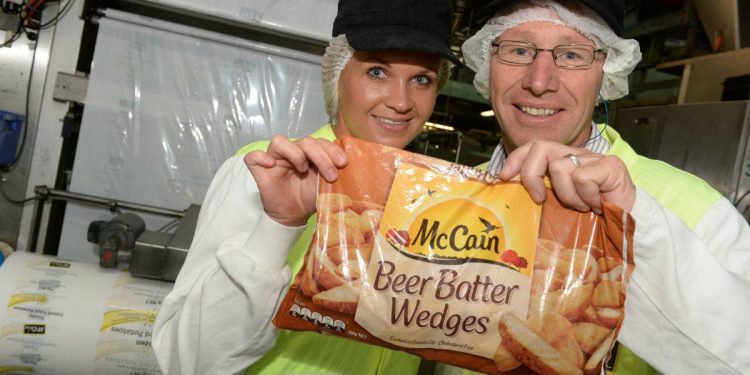#Agriculture#McCain#Foods#CanadianProcessingPlant#Innovation#Sustainability#EconomicGrowth#PotatoFarmers#FoodIndustry
McCain Foods, a global leader in the food industry, has recently announced its largest-ever investment in a Canadian processing plant. This investment is expected to have significant implications for farmers, agronomists, agricultural engineers, farm owners, and scientists who work in agriculture. In this article, we will explore the details of this investment and its potential impact on the agriculture industry.
According to the article published on Potato News Today, McCain Foods is investing CAD 350 million in its potato processing plant in Florenceville-Bristol, New Brunswick. The project will increase the plant’s capacity by 100 million pounds of potato products annually, including French fries, tater tots, and hash browns. This investment is expected to create over 80 new jobs, in addition to the plant’s current workforce of 450 employees.
This investment by McCain Foods is a significant development for the agriculture industry. It demonstrates the company’s commitment to investing in sustainable and innovative technologies that will help meet the growing demand for high-quality food products. The increased capacity of the processing plant will also create new opportunities for potato farmers in the region, who will have a reliable market for their crops.
Furthermore, this investment is expected to have a positive impact on the local economy, creating jobs and driving economic growth in the region. The expansion of the processing plant will also improve the efficiency and sustainability of the supply chain, reducing waste and increasing productivity.
In conclusion, McCain Foods’ significant investment in its Canadian processing plant is a game-changer for the agriculture industry. The increased capacity of the plant will create new opportunities for potato farmers, while also driving economic growth and sustainability in the region. This investment demonstrates the potential for collaboration between the food industry and agriculture to drive innovation and meet the growing demand for high-quality food products.







